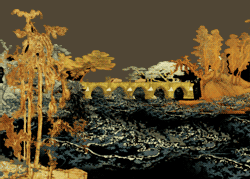Taiwan Cinema
 A
Portrait of Hou Hsiao-hsien A
Portrait of Hou Hsiao-hsien
When personal films started being made in Taiwan in the early
80-ies, few expected them to permanently change the world cinematography.
Perhaps the most prominent filmmaker of that era is screenwriter
and most of all director Hou Hsiao-hsien. His early films dealt
with historical themes confronting the island's turbulent history
with stories of ordinary people. The intimity of these films together
with their masterful cinematic form fascinated Western Europe.
At Filmasia, this period is represented by A City of Sadness (1989)
awarded with the Golden Lion at the Venice festival. In 2001,
the director shocked Cannes with his Millenium Mambo not only
because of its harshly contemporary story, but also with its cinematic
treatment. Departure from the traditional themes can also be seen
in the filmmaker's most recent pictures Café Lumi?re (2003) and
Three Times (2005). Both testify to the author's extraordinary
vitality, ability to come up with an original visual approach
and his rank among today's elite filmmakers.
"New Taiwan Cinema"
Most smaller regional cinematographies manage to once in a while
captivate the world with outstanding films and film-making personalities.
However, such illustrious period tends to quickly fade off and
the particular national cinematography subsequently suffers a
painful hangover. Taiwan is an exception as its "New Wave"
often dubbed :New Taiwanese Film" remained on its peak for
almost 20 years and among directors yielded several strong personalities.
This section introduces early works by all key authors of the
Taiwanese cinematographic miracle. The oldest films featured are
The Sandwich Man (1983) and Summer at Grandpa's (1984) by Hou
Hsiao-hsien and Terrorizers (1986) by Edward Yang.
The second generation of directors of this period is represented
by Tsai Ming-Liang with his debut Rebels of the Neon God (1992),
Ang Lee with his debut Pushing Hands (1992) and Stan Lai with
The Peach Blossom Land (1992). Among other films, this selection
also includes the cult kung-fu feature Dragon Inn (1967) parts
of which are often used be the above filmmakers in their own works.
Similar to other regional "New Waves", the Taiwanese
surge fascinates with its human approach to the often grim everyday
reality of life in the modern era.
 Contemporary Taiwanese Cinema Contemporary Taiwanese Cinema
After the boom of independent and personal filmmaking of the
80-ies and the 90-ies, Taiwan saw a rise of genre cinematography
typical to the entire East Asia. Its extraordinary popularity
led to rapid commercialization of Taiwanese cinematography and
brought forth the youngest generation of directors who learned
their trade making music videos, TV series or designing marketing
strategies. However, even their films reflect the turbulent history
of the island and the cult of personal-style directors.
Moreover, these up-and-coming directors succeed in attracting
audiences to such extent that their films defeat Hollywood production
at the box office not only in Taiwan but even in other countries.
They manage to achieve such success even with movies whose hero
is a young, naive homosexual (Formula 17), a traditional, nevertheless
breathtaking horror (Heirloom) or a friendly, female film dealing
with the caveats of the modern world (Blue Cha Cha). Contemporary
Taiwanese film gives a very professional impression and offers
a strong emotional and artistic experience.
Documentaries and Student Films
Taiwan, too, is witnessing modernization and a renaissance of
documentaries. Whilse in the decades before, most directors used
to concentrate on feature films, the 90-ies brought a generation
of documentary filmmakers who open new windows into various specific
aspects of life on the island. They mostly turn their attention
to the countryside which preserves a certain social identity and
where traces of the original Taiwanese culture can still be found.
It is a culture radically influenced by the political events in
mainland China in the 20th century and the subsequent transition
to a liberal economical system and a culture the Taiwanese filmmakers
have only recently started paying attention to.
The Taipei National University of Arts is a school similar to
the Czech FAMU in the sense that most successful local filmmakers
are its graduates. Filmasia offers a collection of student films
which have already earned success at international festivals and
whose authors represent the creative potential which will change
the face of Taiwanese cinematography in the years to come.
|







